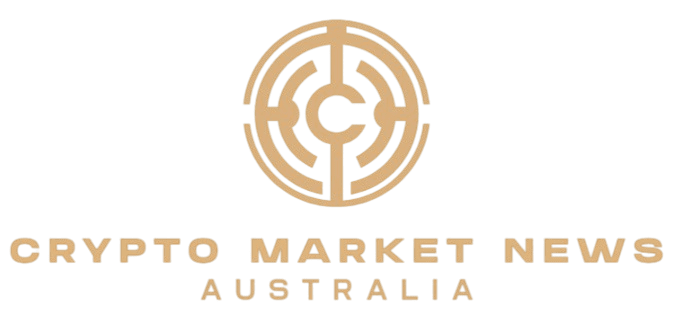In major crypto news, Australia’s government, behind the ruling center-left Labor Party, recently proposed a new crypto framework that would regulate exchanges under existing financial services laws. It has also proposed to take on the issue of debunking.
This crypto news comes prior to the May 17 federal election. Current polls show that it is a close race between current Prime Minister Anthony Albanese of the Labor Party and Peter Dutton of the opposing Coalition. What does this framework entail, and how will it look for cryptocurrency investors?
New Proposal
This ambitious whole-of-government approach aims to regulate and integrate digital assets into the greater economy. Australia is taking the lead based on previous work done by the European Union (EU) and Singapore. One of the major issues behind many cryptocurrencies is that they don’t have solid regulatory backing.
The Australian Treasury published its white paper, laying out plans to embrace tokenization, central bank digital currencies (CBDCs), and real-world assets (RWAs) in a broader push to give its financial system a modernized touch. The implementation of retail CBDC has been ruled out for now, though the government sees a tokenized settlement infrastructure and wholesale CBDC version as the key to unlocking broader asset access and greater market efficiency.
Pilot Trials
The government says that the Australian Securities and Investment Commission, the Australian Treasury, and the Reserve Bank of Australia are planning to launch their own pilot trials. These trials would make use of tokenized money, including stablecoins, in order to settle transactions within wholesale tokenized markets.
As the report states, “Markets for tokenized assets may be able to increase automation, reduce settlement risk, lessen reliance on multiple financial intermediaries, simplifying trading processes, reduce transaction costs, and provide broader access to traditionally illiquid assets.”
Digital Asset Platforms (DAPs)
Also in the white paper is the presentation for a licensing structure for crypto exchanges. This will be known within the country as Digital Asset Platforms (DAPs). Those operating DAPs will be required to meet specific financial services obligations. Those obligations will include disclosure and capital adequacy requirements while making use of third-party custodians in order to safely store customer assets.
Additionally, the government has a plan in place to address concerns within the industry regarding de-banking. It will use its DAP licensing regime, which will allow for banking partners to more efficiently and effectively engage in risk management.
The government acknowledged the growing issue of de-banking. Under the new licensing regime, the aim will be to improve transparency and risk management within the cryptocurrency sector. That, in turn, could reduce the number of instances of de-banking done by major financial institutions.
“The government has been working with stakeholders to ensure transparency and fairness, including engaging with Australia’s major banks to understand the extent of de-banking,” the white paper reads.
The effort in anti-debanking in Australia comes in the wake of continued hearings in the U.S. on the matter. Senator Tim Scott and his FIRM Act is looking to stop regulators from using reputational risk as a means to block crypto firms from gaining access to banking rails.
Jonathon Miller, the managing director of Australia for crypto platform Kraken, has spoken of the company’s welcome of this initiative. He even emphasized the need for bespoke legislation in order to reduce uncertainty.
“It’s great to see recognition of the urgent need for bespoke crypto legislation to address the existing confusion and uncertainty facing Australian crypto investors and businesses,” Miller said. “By establishing a clear regulatory framework and mitigating problems like debanking, the government can remove the barriers hampering growth in the Australian economy.”
Previous Action
This regulatory framework has been in the works for a long time. Back in August 2022, the Australian government began initiating a series of industry consultations in order to create the now-proposed regulatory framework in the crypto industry.
The Treasury said in a statement: “Our legislative reforms will extend existing financial services laws to key digital asset platforms, but not to all of the digital asset ecosystem.”
At the time, Financial Services Minister Jane Hume said, “The government can’t guarantee your crypto any more than it can guarantee a painting or a share in a company, nor should it. But we can make sure Australian exchanges, custodians and brokers – Australian players in the crypto ecosystem – work within a regulatory framework that is better, safer, and more secure.”
Exemptions, Stablecoins, and More
One of the more interesting aspects of the proposal has to do with smaller businesses. Startup and small-scale platforms that don’t meet specific thresholds for size will be exempt. The case also extends to firms that create digital assets or develop blockchain-related software that aren’t financial products.
In regard to payment stablecoins, they will be treated as a type of stored-value facility. This will fall under the Australian government’s Payments Licensing Reforms. That said, there are some wrapped tokens and stablecoins that will be exempt.
“Dealing or secondary market trading in these products will not be treated as a dealing activity, and platforms where they are traded will not be treated as operating a market simply because of that trading activity,” the Treasury said.
Changes Under Albanese’s Agenda
As a part of the overall crypto agenda, the government under Albanese is promising to work with the four largest banks in Australia to gain a better understanding of the nature and extent of de-banking. This practice involves closing banking accounts or services to individuals or businesses that have been perceived to be a regulatory, financial, or reputational risk to the bank.
The government plans to release a draft of its legislation to be provided for public consumption and consultation. That said, a change of government in the coming elections could change the timeline and trajectory of any proposed regulations to Australia’s cryptocurrency exchange framework.
Inside the Cryptocurrency Regulations
There have been certain legislative amendments in order to accommodate cryptocurrency use, but they have largely been focused on the issuing and exchanging process, which are more transactional relationships.
Via consultations, the government is looking to focus on the managing of risks by regulating centralized entities rather than decentralized structures or individual assets. There is currently no legislation in place to deal with cryptocurrencies within technology-driven laws, they can and do fall under existing regimes of Australian law.
There are also currently no regulations when it comes to dealing with blockchain or other distributed ledger technology (DLT) within Australia. That said, the approach to the regulatory issues that arise through DLT and blockchain implementation tends to be more generalized.
Regulatory Scope, Key Inclusions
The biggest takeaways from the proposed regulatory framework are numerous. First, this framework will apply to custody services, specific brokerage platforms, and crypto exchanges that facilitate the storage and trading of digital assets.
Businesses that offer tokenized store-valued facilities, which include some prominent stablecoin issuers, will also be subject to not only compliance but licensing obligations as well. With these obligations comes regular audits that ensure regulatory compliance, specifically in key areas.
It is also worth noting that firms that create or use digital assets for developing software, maintaining digital asset infrastructure, or non-financial purposes won’t fall under any of the new proposed regulations.

